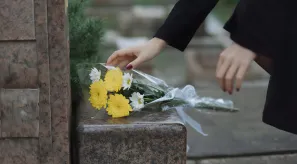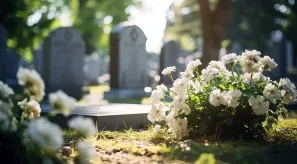When a person is cremated, a common question arises among family members: who owns the ashes of the deceased? While this may seem like a simple matter, the reality is that the law does not always provide a clear answer, and disagreements can arise—especially when there are no written instructions from the deceased.
In this article, we explain who has the right to keep the ashes, what happens when there are family disputes, and what the law says about the possession and possible division of cremated remains. Our goal is to help you make informed decisions during a sensitive and emotionally charged time.
Who has the right to decide over the ashes?
In Spain, there is no national law that explicitly defines the legal owner of cremated remains. However, courts and legal principles have established guidelines that help resolve these situations.
The deceased’s will or express wishes
The most important reference is whether the deceased expressed their will, either through a formal will, an advance healthcare directive, or a written or verifiable verbal statement. If the deceased indicated what should be done with their ashes—or who should be responsible for them—that wish must be respected.
It is legally binding and carries significant weight in any potential family dispute. At Stelae, we always encourage people to document their decisions clearly in writing to avoid unnecessary conflicts regarding the ashes of a loved one.
Legal order of family members
If the deceased did not leave specific instructions, the general rule is to follow the closest family relationship. The following hierarchy is typically used:
- Surviving spouse or registered domestic partner
- Children
- Parents
- Siblings or other close relatives
Although this hierarchy is not defined by law, it is used as a guideline by crematoria and courts alike. Ideally, the family reaches a mutual agreement based on emotional closeness and respect for the deceased.
What happens if there are conflicts between family members?
Disagreements about who owns the ashes of the deceased are not common, but they can happen—especially in blended families or when no one was clearly designated to take responsibility for funeral arrangements.
How to prevent these conflicts?
There are several ways to reduce the likelihood of disputes about who owns the ashes of the deceased:
- Ensure the deceased’s wishes are clearly written in a will or advance directive.
- Appoint a specific person to manage funeral decisions.
- Maintain open and respectful communication between relatives.
- Work with a professional funeral provider to mediate and assist in decision-making.
In cases where conflict escalates, family members may need to go to court. Judges typically consider the relationship to the deceased, any documented wishes, and each party’s intentions regarding the ashes.
Difference between possession and legal custody of the ashes
It’s essential to distinguish between physical possession and legal custody:
- Physical possession refers to having the ashes in your home, usually in an urn.
- Legal custody refers to the right to decide what happens to the ashes—whether to keep, move, divide, or scatter them.
Just because someone has the ashes doesn’t mean they are legally authorized to make decisions about them. In disputes, the person without legal custody may be required by a court to surrender them.
What does the law say about dividing the ashes?
There is currently no specific Spanish law that prohibits or regulates dividing cremated remains. This means families can decide to share the ashes if they wish, especially when multiple people want a part of the loved one close to them.
If ashes are to be divided, we recommend:
- Reaching a mutual agreement among all close relatives.
- Using appropriate, sealed urns or containers.
- Informing the crematorium ahead of time if the division will be done there.
- Respecting the symbolic and emotional significance of the remains.
Some families choose to keep part of the ashes in memorial jewellery or smaller urns, while the rest may be buried or scattered.
Frequently asked questions about the possession of ashes
What happens if the ashes are not collected?
Crematoriums typically store ashes for a limited time—usually between 30 and 90 days. If no one claims them and no instructions are on record, the crematorium may scatter the ashes in a memorial garden or similar location, always with respect and in accordance with local procedures.
Is it legal to keep ashes at home?
Yes. In Spain, it is entirely legal to keep ashes at home, unless the deceased’s will states otherwise or a court rules against it. Families are encouraged to store the urn in a safe, respectful location that preserves the integrity of the remains.
Can I claim the ashes of a deceased person?
If you are a direct relative and believe you have a legitimate right to the ashes, you can submit a request to the funeral provider or crematorium. If another person already has the ashes and there is a dispute, a judge may need to resolve the matter. The court will assess the nature of the relationship, any written instructions, and the intended use of the remains.



